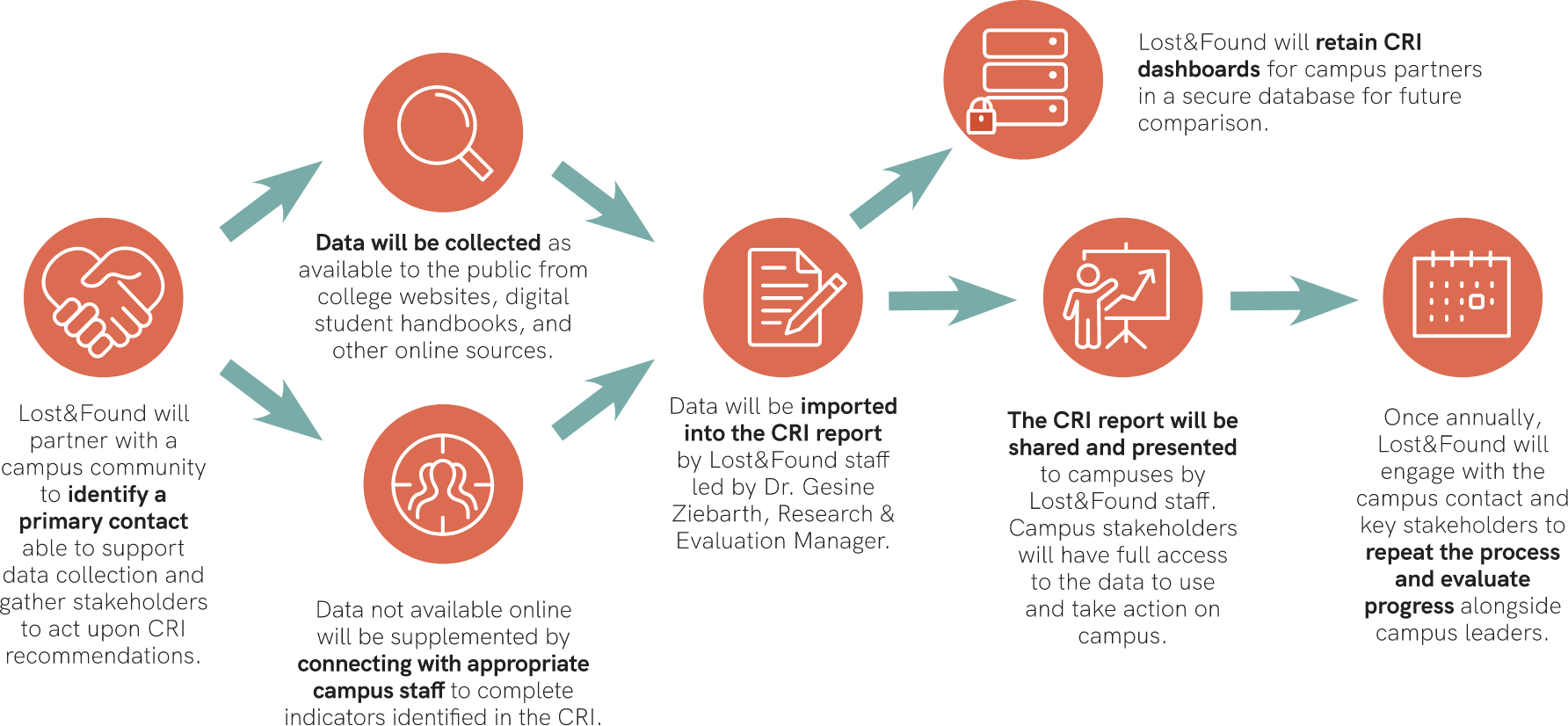Research & Evaluation
Campus Resilience Index
The Campus Resilience Index (CRI) is a partnership-driven tool created by Lost&Found that assesses the suicide prevention capacity of college and technical school campuses and their communities; identifies areas of strength in prevention; and recommends programs, policies, or resources that can reduce suicide risk.
Lost&Found’s Research & Evaluation Services team manages and implements the CRI in collaboration with a campus contact and stakeholders identified as critical to campus prevention efforts. Through the data-collection process, campus and community stakeholders engage in understanding their own prevention strategies and efforts, where strengths and challenges lie, and where action can be taken. The CRI is intended to be repeated each year, creating an annual process of engaging, measuring, evaluating, and implementing prevention strategies.
Increasing reports of mental health conditions and suicide risk are straining prevention, intervention, and postvention efforts at post-secondary institutions in South Dakota and the surrounding region. The CRI provides a comprehensive visualization of suicide prevention capacity by measuring the Centers for Disease Control and Prevention’s seven evidence-based suicide prevention strategies in campus community contexts. The CRI collects data from a variety of primary sources (e.g., available counseling center programs) and secondary sources (e.g., tuition) to assess what strengths and challenges exist in current prevention strategies.
The CRI’s broad, thorough view of campus prevention efforts can guide decisions on investments in existing or new prevention efforts that will best serve students. The information also helps Lost&Found to better support campus partners implementing suicide prevention programs and policies.
The Campus Resilience Index…
…drives action. Clear data and visuals help campus leaders discern the strengths and challenges of prevention strategies and take action.
…provides an opportunity to learn from peers. The CRI informs campuses about approaches deployed by peer institutions without exposing information from individual institutions.
…enables greater understanding of the prevention ecosystem in campus communities. The CRI supports individual campus communities while also contributing to a larger effort to better understand the campus suicide prevention ecosystem and where larger investments or policy efforts can be directed to support mental health care providers and the students they serve.

The CRI was developed based on the seven evidence-based suicide prevention strategies that the Centers for Disease Control and Prevention (CDC) have identified:
Strengthening economic support
Promoting connectedness
Creating protective environments
Teaching coping and problem-solving skills
Identifying and supporting students at risk
Strengthening access and delivery of suicide care
Lessening harms and preventing future risk
Indicators relevant to student success were designed to match each strategy and provide a comprehensive view of how campuses can address each strategy.
A sample report is provided below (without recommendations).

Bring the Campus Resilience Index to Your Campus
Start a conversation about how the Campus Resilience Index can help to drive understanding and action at your campus.
Contact Now
© 2026 Lost&Found
Web Development by McQuillen Creative Group